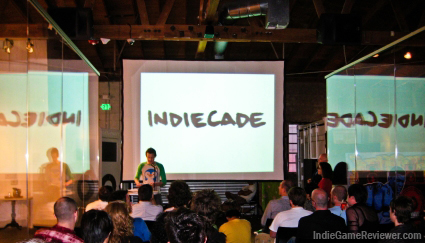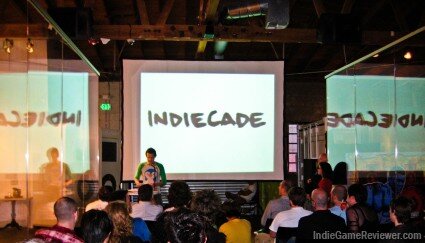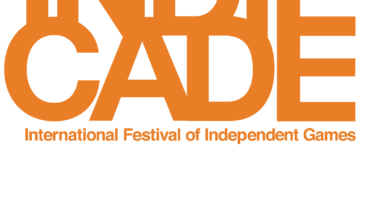 Culver City (California) – The first day of Indiecade has come and gone, with a warm welcome from mayor Andrew Weissman of the quaint (if artificially so) movie-making hometown of Sony Pictures USA and Culver Studios where many of your favorite films and TV shows were put together – Culver City, California.
Culver City (California) – The first day of Indiecade has come and gone, with a warm welcome from mayor Andrew Weissman of the quaint (if artificially so) movie-making hometown of Sony Pictures USA and Culver Studios where many of your favorite films and TV shows were put together – Culver City, California.
The Christmas tree lights that line so many of the artisanal cafés and galleries throughout this neighborhood somehow provide a perfect setting for the often artsy, cerebral and philosophical fare that is increasingly permeating the independent gaming world and simultaneously pushing it in ever wider audiences. Indie games are no longer the poor man’s first person shooter. In fact they are far far from it. Subjects ranging from Korean folklore concerning rabbits that populate the moon (ClassicNight), the wandering through the mind of a drug addict – and being rewarded for tripping out – (Akrasia) inform not only the concept but innovative play style of today’s emerging fare.

We sat in on the two hour-long microtalks session wherein each of this year’s nominated finalists was given 12 slides at 16 seconds each to talk about their games. The result was not only consistently entertaining, but utterly fascinating. I mean, these developers range from one-man Spanish speaking self-taught Flash programmers who flew all the way from Argentina (Moon Stories) to 19-year-olds talking some pretty heavy physics and engineering paradoxes (Closure) to recent graduates from USC (Minor Battle) and the Singapore-MIT GAMBIT Game Lab (Akrasia).
Nowhere to be found were the frag enthusiasts or Columbine tributaries that one used to expect from the definition of floppy disk era indies like DOOM and Duke Nukem.
For better or worse, depending on your take, indie games are becoming something entirely new. Or perhaps, to be fair, there is a wave of independent game development that is fanning out into something entirely new and marvelous – it’s modern and in step with the forefront of design, it’s thought provoking, emotionally rich, literary, post-modern, multi-cultural, subversive and evolving beyond its usually gummy genre types (for eg. Space Shooter, Platformer, Puzzle, Escape the Room). In fact the conjunctive titles of the very genres under which they are being cataloged are starting to fail as classification becomes increasingly elusive.
But that is the essence of Indie as a word – built in to its very definition (like the word AlternativeTM once did) is the need to subvert and break from the mainstream.
All of that was on display at the opening day. Some would argue that this year’s finalists hardly represent the best of what is out there – but many of them really are; polished despite breaking so much from the pack, playable despite being so unorthodox, accessible despite being so small (many of these may have had literally no budget).
We will zoom in on some of the games we saw and the developers with whom we spoke over the coming days.
For now a moment of rest.



